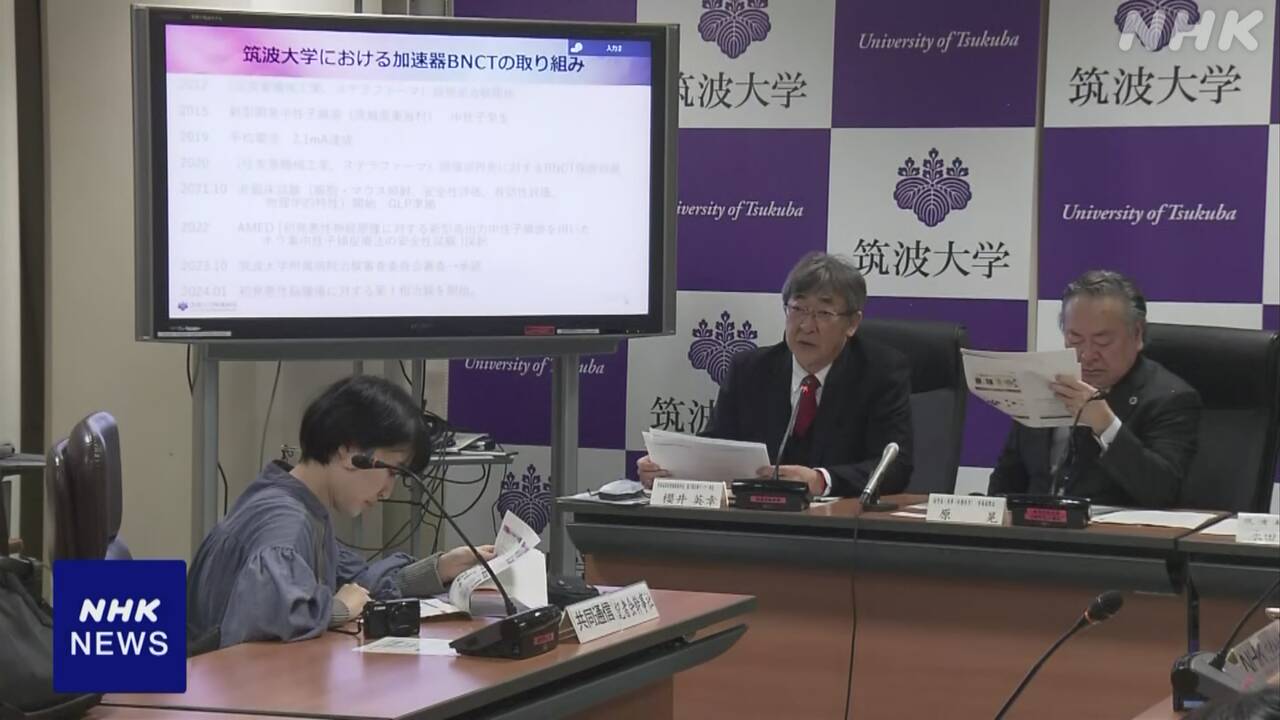The University of Tsukuba in Tsukuba City, Ibaraki Prefecture, announced that it will begin clinical trials on a next-generation treatment for a brain disease called glioblastoma, a type of intractable cancer.
By using the uniquely developed device, the company says it will be able to shorten treatment time and provide treatment to more patients.
This was announced by the University of Tsukuba at a press conference on the 22nd.
Glioblastoma, a type of intractable cancer, is a brain disease with a 5-year survival rate of around 10%, and even with surgery and other treatments, the risk of recurrence is high, and no treatment has yet been established. not.
The University of Tsukuba is collaborating with Tsukuba City's High Energy Accelerator Research Organization and others to conduct a clinical trial for patients diagnosed with glioblastoma using a treatment called BNCT, which combines an independently developed irradiation device with an investigational drug. It means starting.
BNCT is a treatment method that destroys cancer cells by bombarding them with neutrons that incorporate boron, and is expected to greatly increase survival rates.
This time, the university has independently developed a device that will shorten the treatment time, making it possible to provide treatment to many patients, and it can also be used as a treatment for other intractable cancers. It means that it is expected.
Hideyuki Sakurai, a professor of radiation oncology at the University of Tsukuba, said at a press conference, ``We see this as a challenge to treat intractable cancers.The ability to treat multiple patients in one day is groundbreaking for this device.'' Ta.

